Wellness with Essential Oils - Aromatherapy Wellness Advice
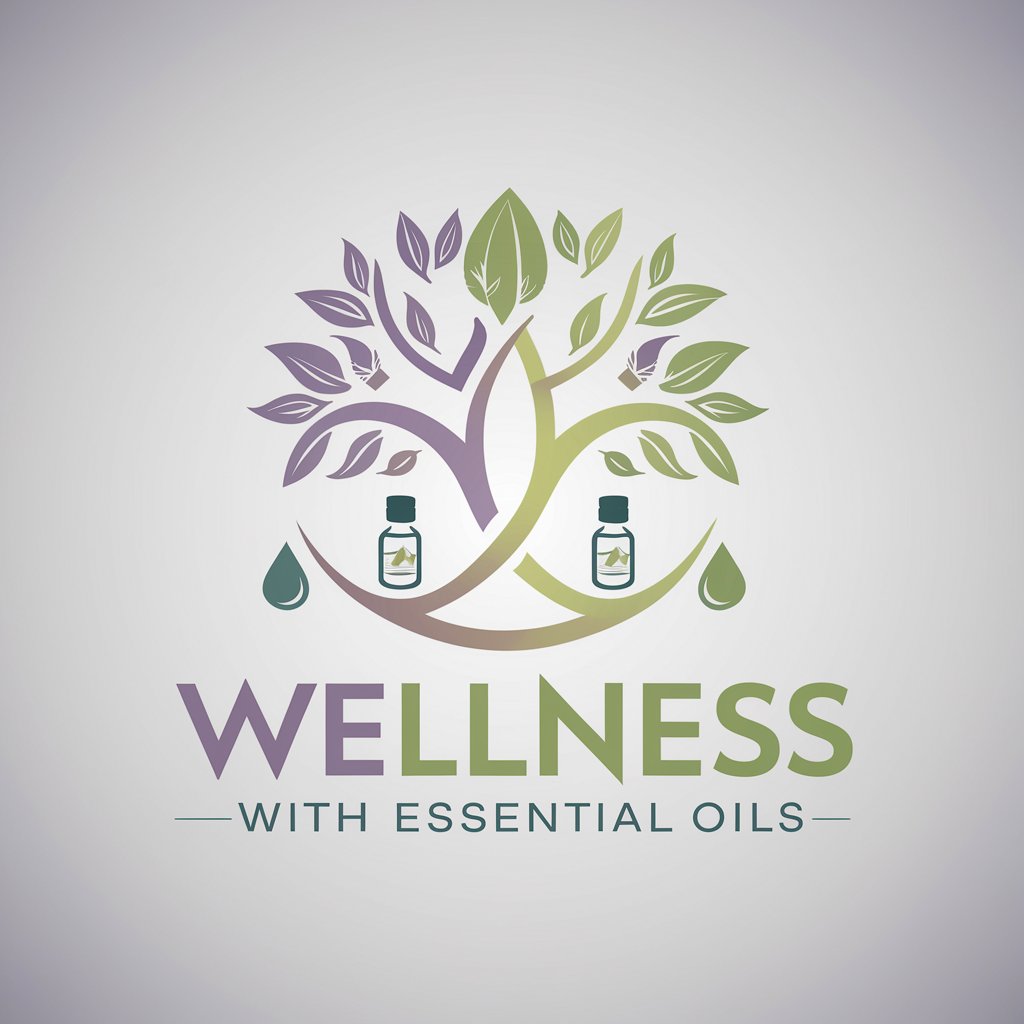
Welcome to Wellness with Essential Oils, your guide to natural health and aromatherapy.
Harness AI to Enhance Your Well-being
How can I use essential oils to improve my sleep quality?
What are the best essential oils for reducing stress and anxiety?
Can you suggest a blend of essential oils for boosting energy?
What safety guidelines should I follow when using essential oils?
Get Embed Code
Overview of Wellness with Essential Oils
Wellness with Essential Oils is designed to offer personalized wellness advice based on aromatherapy principles and the holistic application of essential oils. This service emphasizes health enhancement through natural means, particularly focusing on how the aromatic and therapeutic properties of essential oils can be utilized to improve mental, emotional, and physical well-being. A common example is the use of lavender oil to alleviate stress: users receive guidance on how to diffuse lavender in their living spaces or apply it topically with a carrier oil to promote relaxation and reduce anxiety. Powered by ChatGPT-4o。

Core Functions of Wellness with Essential Oils
Stress Relief
Example
Lavender and chamomile oils
Scenario
A user experiencing high stress may be advised to use a diffuser with lavender and chamomile essential oils in their bedroom in the evening to promote relaxation and enhance sleep quality.
Sleep Improvement
Example
Bergamot and sandalwood oils
Scenario
For users struggling with sleep, diffusing bergamot and sandalwood oils before bedtime can help in establishing a calming bedtime routine, thereby facilitating quicker and deeper sleep.
Mood Enhancement
Example
Orange and peppermint oils
Scenario
To uplift mood and increase energy levels, diffusing orange and peppermint oils in a home office or workspace can invigorate the environment, boosting productivity and mood during the workday.
Target User Groups for Wellness with Essential Oils
Individuals Interested in Natural Health Practices
This group includes those who prefer holistic and natural remedies over pharmaceutical options. They benefit from using essential oils as preventive healthcare measures and as non-invasive treatments for common ailments.
Professionals Needing Stress Relief
Busy professionals who face high levels of stress and burnout can utilize essential oils to manage stress, enhance concentration, and improve overall well-being in a demanding work environment.
People with Sleep Disorders
Individuals struggling with insomnia or disrupted sleep patterns can use essential oils like lavender, vetiver, and marjoram to improve sleep quality and duration.

How to Use Wellness with Essential Oils
Step 1
Visit yeschat.ai for a free trial without requiring a login or subscription to ChatGPT Plus.
Step 2
Choose your wellness goal such as stress relief, sleep improvement, or mood enhancement to receive personalized essential oil recommendations.
Step 3
Explore various application methods provided, including topical application, inhalation, or diffusion, and select the one that best fits your preferences and situation.
Step 4
Follow safety guidelines and dosages specific to each essential oil to ensure a safe and effective experience.
Step 5
Regularly assess your wellness progress and adjust your essential oil selections and application methods as needed.
Try other advanced and practical GPTs
Healing with Essential Oils
Harness AI for Natural Wellness
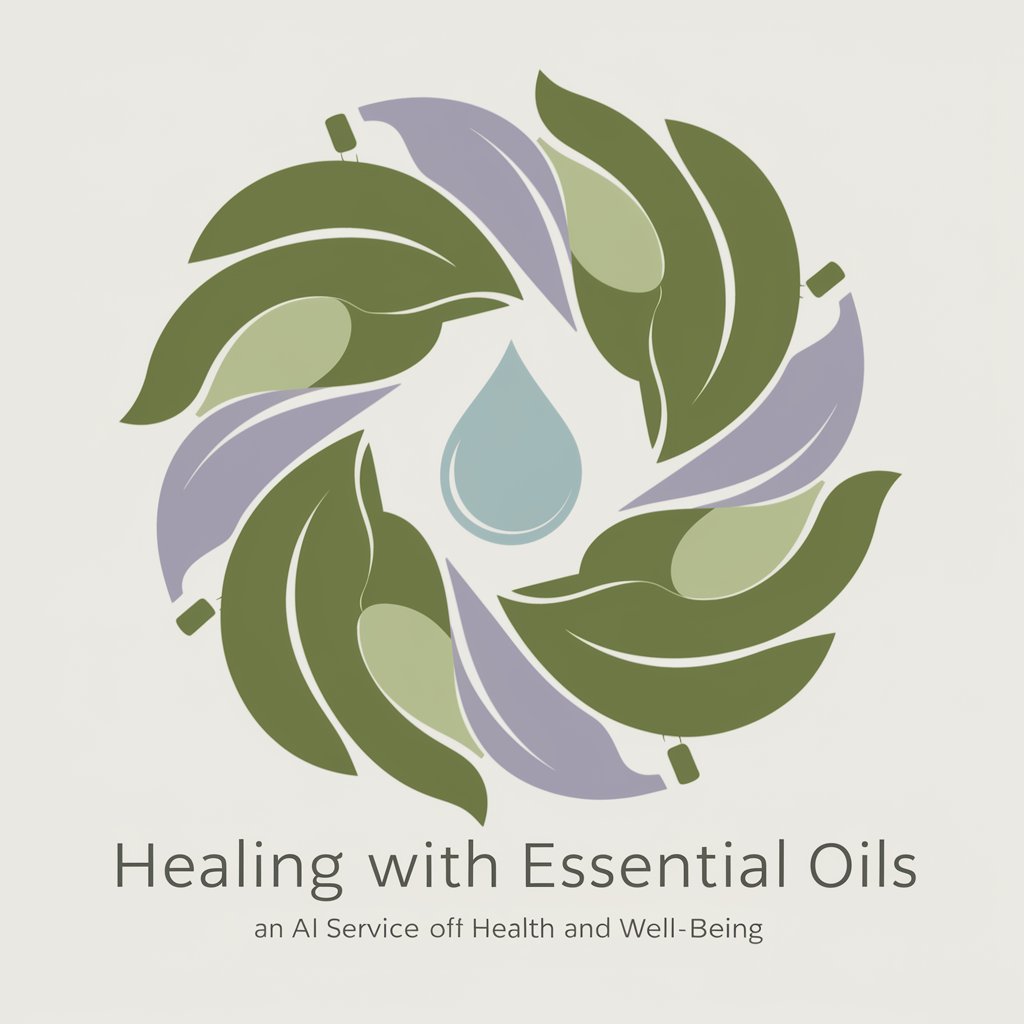
Entrepreneur's Essential
Harness AI for Business Mastery

Clear Communicator - Essential Refinement
Transform Text with AI-powered Precision

Essential oil
Crafting Quality Content with AI

Essential Beekeeper
Empowering beekeepers with AI-driven guidance

Plugin Craft
Crafting Your Minecraft Imagination with AI

Essential Oil Maestro
Your AI-powered Aromatherapy Guide

Essential Life Guide
Empowering growth with AI-driven insights
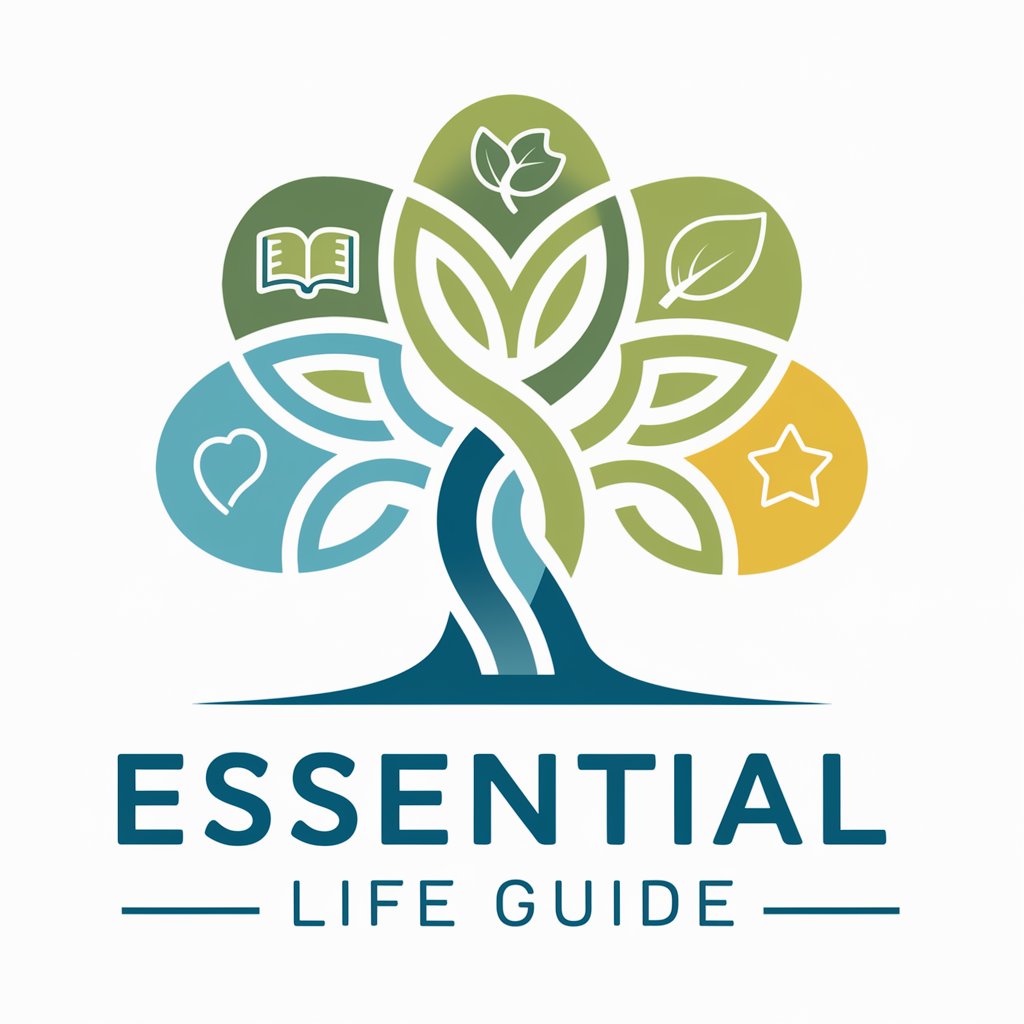
Essential Question Crafter
Crafting compelling questions with AI.
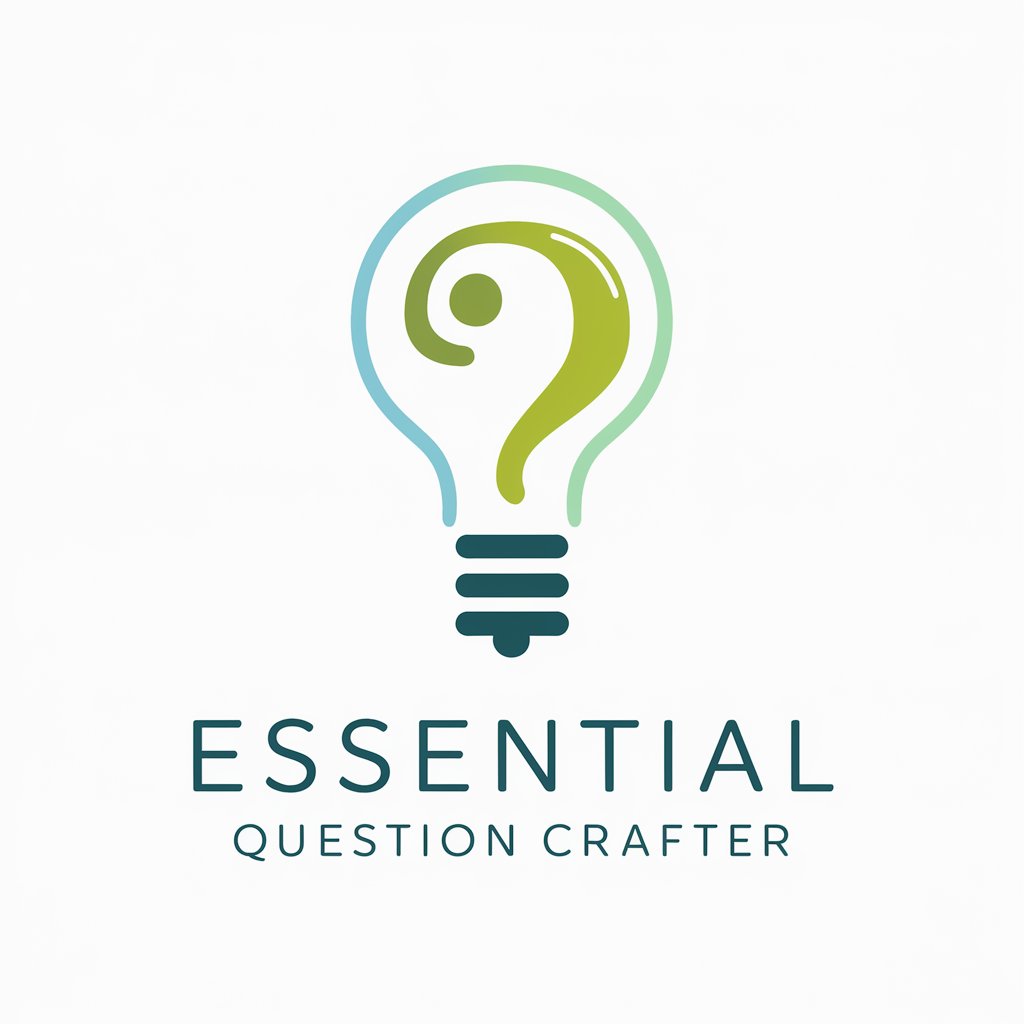
Your Essential GPT
Empowering Knowledge with AI
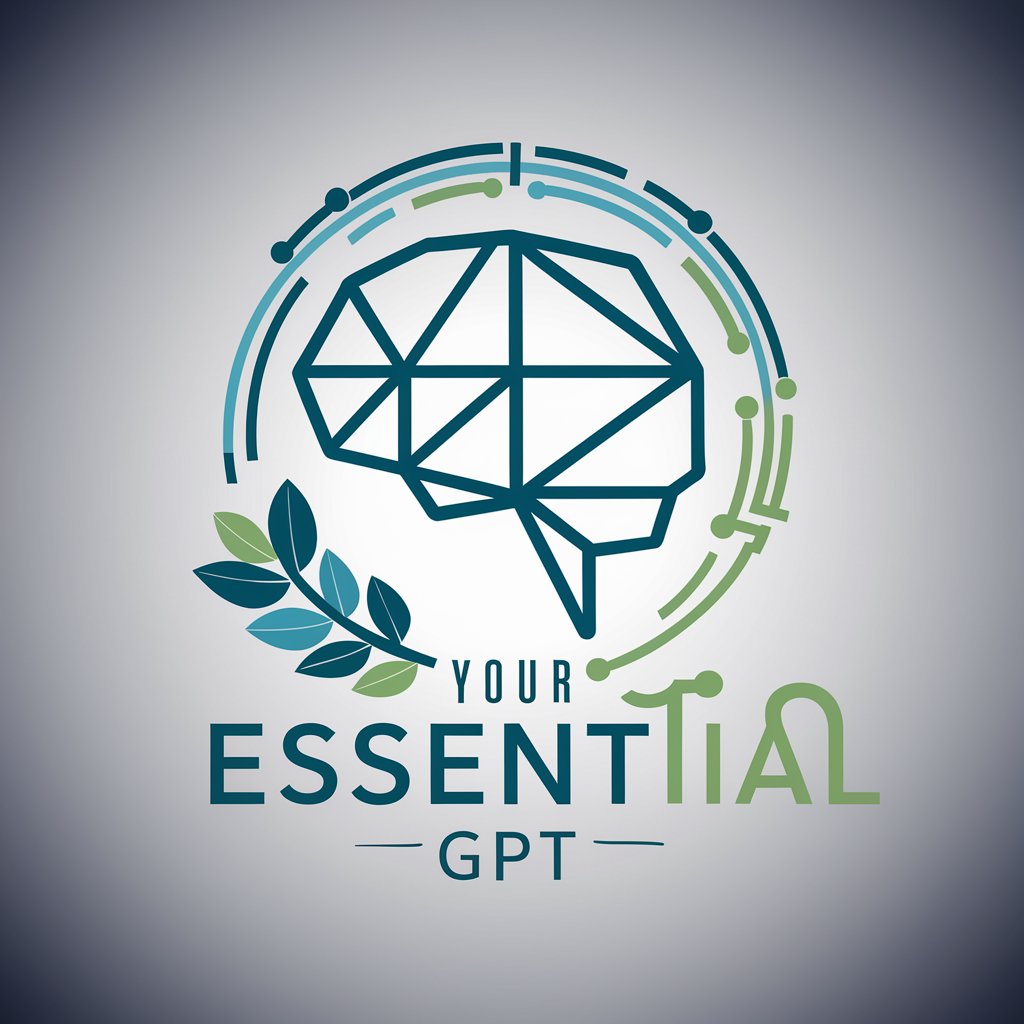
Essential Advisor
Your AI-Powered Advisory Companion

Reaction Analyst
Unlock the nuances of human relations with AI-powered insights.

FAQs about Wellness with Essential Oils
What are the health benefits of using essential oils?
Essential oils can provide numerous health benefits including stress reduction, enhanced sleep quality, mood improvement, increased cognitive function, and pain relief, depending on the specific oil and method of application.
How do I choose the right essential oils for my needs?
Identify your health or wellness goals, then select oils known for their beneficial properties in those areas. For example, lavender for relaxation or peppermint for energy. It's also beneficial to consider any personal allergies or sensitivities.
Are there any risks associated with essential oils?
Yes, improper use of essential oils can lead to skin irritation, allergic reactions, or other adverse effects. Always dilute oils appropriately, avoid sensitive areas, and consult a healthcare professional if you have specific health concerns.
Can essential oils replace my medicine?
Essential oils can complement traditional medicine but should not replace prescribed treatments without a doctor’s advice. They are best used to enhance well-being and manage symptoms, not as a cure for medical conditions.
How should I store my essential oils?
Store essential oils in a cool, dark place away from direct sunlight to maintain their efficacy and extend their shelf life. Keep bottles tightly closed and out of reach of children and pets.
